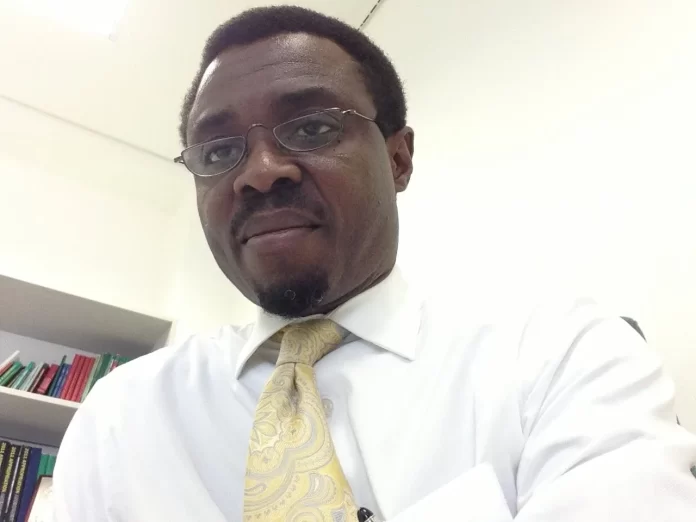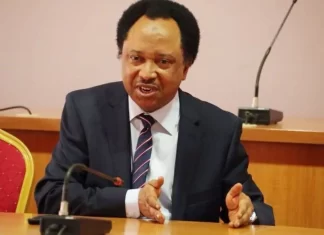In the contestation for power everything including the institutions of the state are compromised leaving the state weak and permissible to destructive tendencies that could ultimately truncate democratic governance. This is one of the reasons why democracies in Africa fail.
By Sonny Ogulewe
Democracies in Africa fail because they are de-developmental in character and are almost always built on weak foundations of greed and desperation. Claude Ake was a celebrated Nigerian professor of political economy, who had argued in one of his works, Democracy and Development in Nigeria, that “by all indications, political conditions in Africa are the greatest impediment to development… constituted to prevent the pursuit of development and the emergence of relevant and effective development paradigms and programmes.”
In Nigeria, the political process as it were is configured not to accelerate development but to constitute a major obstacle to socio-economic and political growth and this is evident in the manner political power is perceived, utilized and sought. It is essentially everything and the struggle for it is “so absorbing that everything else including development”, institutions of the state not excluding the judiciary and security are compromised.
Ake surmised that contestation for political power in Nigeria is “made a top priority in all circumstances and sought by all means” and this by its very nature alone encapsulates the seed of the crisis against democratic advancement.
The present political circumstances has shown that in Nigeria access to political power is access to be above the law; to be audacious in stealing from the commonwealth; to be oppressive of the weak and the vulnerable; to be impudent in primitive accumulation and consumption, and above all to be brazenly loose on morality and integrity. In Nigeria, political power is very absorbing and diminishes any pretenses of empathy, passion and consciousness of the knowledge and reverence to God.
As access to power increases so also is alienation of the political elites from valued principles and the prevailing social realities, but are rather absorbed by the “increasing fear about what seemed to them to be the grave consequences of losing to rivals in the competition for the control of state” and this makes them very desperate and daring during the election cycle.
In this contestation for power everything including the institutions of the state are compromised leaving the state weak and permissible to destructive tendencies that could ultimately truncate democratic governance. This is one of the reasons why democracies in Africa fail.
Periodic elections is a process whereby democracy regulates itself to ensure self-preservation by giving the people an opportunity to evaluate the leadership of the state and make changes where necessary so that the system could stand. It is supposedly this beauty of democracy that gives the citizens the bragging right and hope as rightful members of a civilized society.
Elections according to Barbara Walter, an American scholar, “can strengthen a country, bringing citizens together in a meaningful act of civic duty, they can also renew the hope in institutions and reaffirm the power of people’s role”. But in Nigeria, the case is different. Instead of elections strengthening the country, it has weakened it the more and makes hope for economic and socio-political development increasingly elusive.
Elections in Nigeria have been characterized by all manner of violence, polarizing schemes and outright rigging which Walter perceives as “making a mockery of hope… which can transform a man on the street into a radical” and warned that “if one side can manipulate the results of an election and the democratic checks and balances are too weak to enforce a peaceful transfer of power then hope in a fair competition is lost”, and whereby this hope is lost the consequences could be catastrophic. This is another reason why democracies fail.
READ ALSO: Illusions and realities of political power in Nigeria
Fraudulent elections therefore is a recipe for conflict and ultimately war and must be avoided. The signs were very apparent that the 2023 elections may not after all be a peaceful one even as the party in power was not pretentious of this, having promoted violence and other subversive activities prior to the February 25 elections. The government party was equally audacious in confronting the institutions of the state and even the Federal government.
One could recall the recent attacks on the Governor of the Central Bank of Nigeria, Mr. Godwin Emefiele, and the utterances of the APC Presidential candidate and the APC governors against the new naira policy. Their frustrations which stems from the apparent fear of the inability to determine the eventual electoral outcomes sent them on overdrive alleging plans of violent change of government against the main opposition. This is intolerable and unhelpful to the sustenance of our democratic practice, rather an introduction of a culture of violence which even became more manifest in Lagos, Rivers, Imo and some other states during the elections. Many Nigerian reportedly lost their lives in the process.
Politicians who stoke violence are perhaps ignorant of the consequences, as Walker again noted that “most people don’t realize they are on the part of civil war until the violence is a feature of everyday life” such as the case today where the opposition parties are attacked, maimed, framed, incarcerated and the government party encouraging civil disobedience out of fear of losing power. These are the pathways to the failure of democracies in Africa.
Democracies fail simply because of the weaknesses of the state to reconcile the selfishness and desperation of the predatory political class and the natural obligations of government which is for the general good as against the interest of just a few. The contradictions in these divergent interests are the reasons why there are crises in every election cycle which could lead to the truncation of democratic governance and the seeming willingness of the masses to embrace whatever political contraption that could guarantee them safety and good governance.
Scholars had alluded to this noting that “whereby people are happier and more optimistic of economic prosperity of tomorrow when the quality of governance is significantly high… it reduces the risk of civil war” and would be unmindful of the form of governance that could guarantee this. Almost invariably, these agitations for ‘emi lokan”, inclusion or power rotation would be insignificant or even extinct if our democracy had brought improvement in the general wellbeing of the state and engendered competitiveness above nepotism.
There appears to be a deliberate assault on our democracy by the very beneficiaries of a rogue system that has pauperized a larger segment of the citizenry, whose only stake in the state is to at least have an enabling environment to go about their legitimate businesses. Nigeria’s democracy today is driving dangerously on a sharp curve that could truncate a smooth transition because certain elements feel they must win at any cost. These elements are encouraged by a vicious gang of supposed elites who freely spun lies, hatred and beat drums of war.
I do not see hope. I do not see hope because there is this seeming consensus among the citizens that the institutions of the state for checks and balances particularly the Police and the Judiciary have become weak, absorbed and deeply compromised by our desperate political class. How could there be hope where “the structural elements that enable democracies to respect particularly democratic rights such as independent courts, rule of law, free press, freely elected government and of course meaningful opposition parties” are virtually extinct or inactive because an environment of fear has been created? This is one of the reasons why democracies in Africa fail.
That being the situation, then the optimism for a smooth democratic transition process is certainly unfeasible and invariably makes “a mockery of hope”. When a people are hopeless, it becomes a natural instinct to seek self-preservation by any means possible. We must not get to that stage and give impetus for this our democracy to fail.
- Dr. Sonny Ogulewe, a political analyst, wrote in from Abuja













